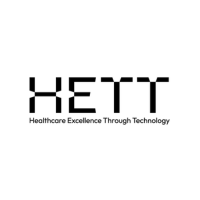Leeds Teaching Hospitals NHS Trust is to launch new Artificial Intelligence (AI) software in breast cancer screening in a first-of-its-kind trial.
The LIBRA (Leeds Investigation of Breast-screening AI) study is aiming to generate evidence for the safe use of AI and conclude if it could reduce unnecessary patient recalls, increase cancer detection rates and reduce the pressure on NHS workforce.
The study aims to tackle the current backlog of patients waiting for breast cancer screening which is as a result of a 30% shortfall in clinical radiologists.
The trust will deploy an AI reader – Mia (Mammography Intelligent Assessment), along with two human readers to analyse mammograms for signs of cancer.
Under the current standard of care, each mammogram is reviewed by two human readers. If they disagree on the readings, a third reader will review the mammogram before a decision is made on whether to recall the patient or not.
The new LIBRA study will see a slight change in practice, with the patient receiving the all-clear if both human readers and the AI reader agree a mammogram is normal. Upon disagreement, clinicians will complete the review before a decision is made.
If the study is successful, it could lead to an AI reader replacing one of the two human readers in the standard model of care, which would free up clinicians to spend more time with patients, whilst speeding up the screening process to increase the number of women seen by the service.
Dr Nisha Sharma, Consultant Breast Radiologist at the trust & Director of Breast-Screening Programme for Leeds and Wakefield is the chief investigator for the study.
Dr Sharma said: “The LIBRA study is important because AI will help us to sustain a high quality service in the future.
“Breast screening isn’t perfect and it is hoped that the LIBRA study will lead to improvements in reviewing mammograms. Cancers that present between screening rounds are often quite aggressive and the reason these can be overlooked is because they are not clearly visible on a mammogram.
“AI works differently to humans and by combining human expertise with technology advances this could lead to earlier detection of cancers and impact positively on women’s lives.
“We will be the first breast screening unit in England to do a prospective study using AI. This is another exciting example of Leeds Teaching Hospitals NHS Trust leading the way in innovation.”
The trust is now looking for 7,000 women to be part of the LIBRA study, which is being funded as part of NHS England’s £100m AI in Health and Care award to accelerate promising AI technologies for health and social care. The study is set to commence later this year.
Learn more about the use of AI in healthcare at HETT North in February 2024
The LIBRA study is just one of the many ways that AI is transforming the healthcare sector to provide better patient experiences and operational efficiencies at this critical time. Learn more about how AI is shaping the healthcare sector at this years HETT North where other critical topic will be discussed, such as digitally empowered patients, interoperability and digital maturity. Register for HETT North to enjoy:
- 40+ hours of CPD-accredited sessions
- 100+ industry leading speakers
- 100+ digital health innovators
- 1-2-1 networking opportunities
What Andy Webster, CCIO, Leeds Teaching Hospitals NHS Trust, has to say about HETT

"It's been really interesting to hear about what other people are doing to manage innovation, mature their electronic health records and it's been really interesting networking with some of the sponsors here as often some of them are people we are already working with, but it’s a great chance to catch up with them face to face."
*Quotes extracted from Leeds Teaching Hospitals site - https://www.leedsth.nhs.uk/about-us/news-and-media/2023/03/06/first-trial-for-ai-software-within-breast-cancer-screening
%20(1).png?width=500&height=58&name=HETT%20insights%20logo%20RGB-04%20(1)%20(1).png)


